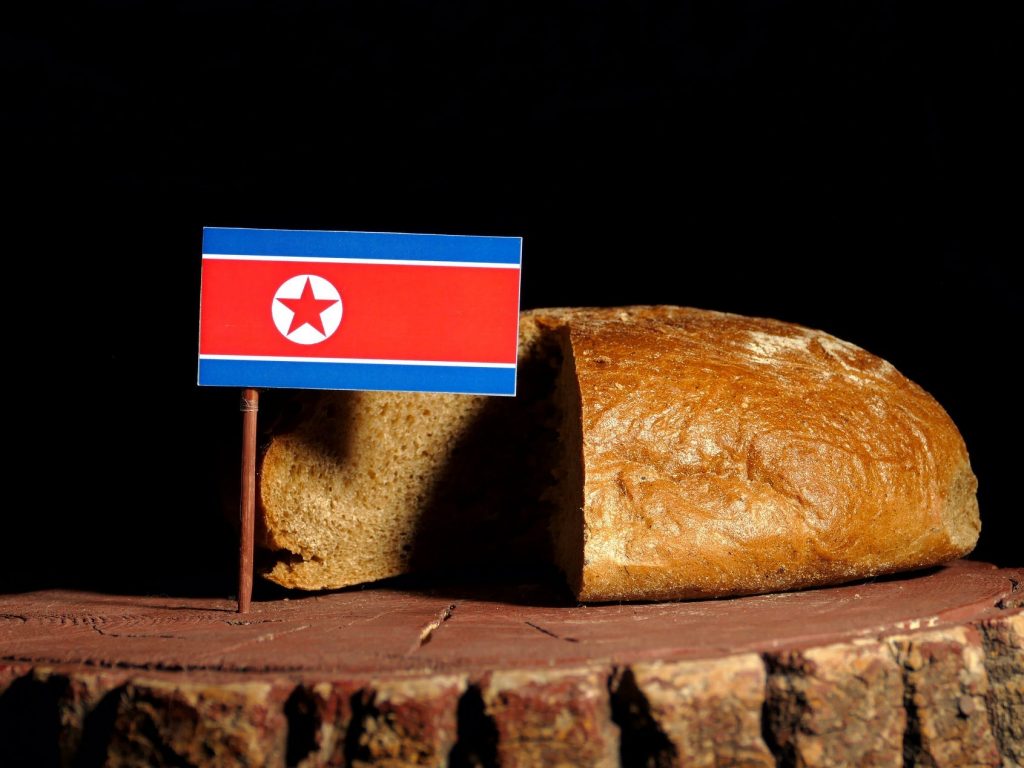- Flour prices have shot up so much that bread has become a status symbol in North Korea, per RFA.
- At around $20 per kilogram, flour has beaten rice as the hottest luxury food item, RFA reported.
- Flour prices soared after the country halted imports when it sealed its borders due to COVID-19.
The hottest status symbol in North Korea is not a new handbag or luxury watch — it's a loaf of bread.
According to Radio Free Asia (RFA), flour has become so expensive in the reclusive country that eating bread has become synonymous with wealth.
"It's the most prosperous households that can buy imported flour from the marketplace and make foods like bread and jijim (savory pancakes)," an anonymous source told the US-funded non-profit outlet in a report published on Tuesday.
Flour is now three times more expensive than rice, which has long been considered a luxury food item reserved for the most wealthy North Koreans, per the outlet. Most North Koreans primarily consume corn and other coarse grains, RFA added.
"When the price of flour is more than two or three times that of rice, as it is now, bread and mandu dumplings suddenly become food that only the high-ranking officials and fabulously wealthy can afford to eat. So foods made with flour are now a symbol of wealth," the source told RFA.
Another source cited by the outlet described flour as "a deluxe ingredient that people use to show off when guests come over."
According to RFA, flour in North Korea costs around 4,000 to 4,600 won ($4.44 to $5.11) per kilogram in 2019. However, after the COVID-19 pandemic hit, the price shot up to as much as 30,000 won ($33) per kilogram. The outlet reported that the current price is about 18,000 won ($20) per kilogram.
Flour prices increased after the hermit nation halted imports when it sealed its borders at the beginning of the pandemic in 2020, RFA reported. While borders reopened briefly this year, they quickly shut again amid a renewed Covid outbreak in neighboring China, per the outlet.
According to data from the Central Intelligence Agency (CIA), North Korea is facing food shortages estimated at 860,000 tons — about two to three months of food use.
"A large portion of the population suffers from low levels of food consumption and very poor dietary diversity; the economic constraints, particularly resulting from the global impact of the COVID‑19 pandemic, have increased the population's vulnerability to food insecurity," per the CIA's World Factbook.
